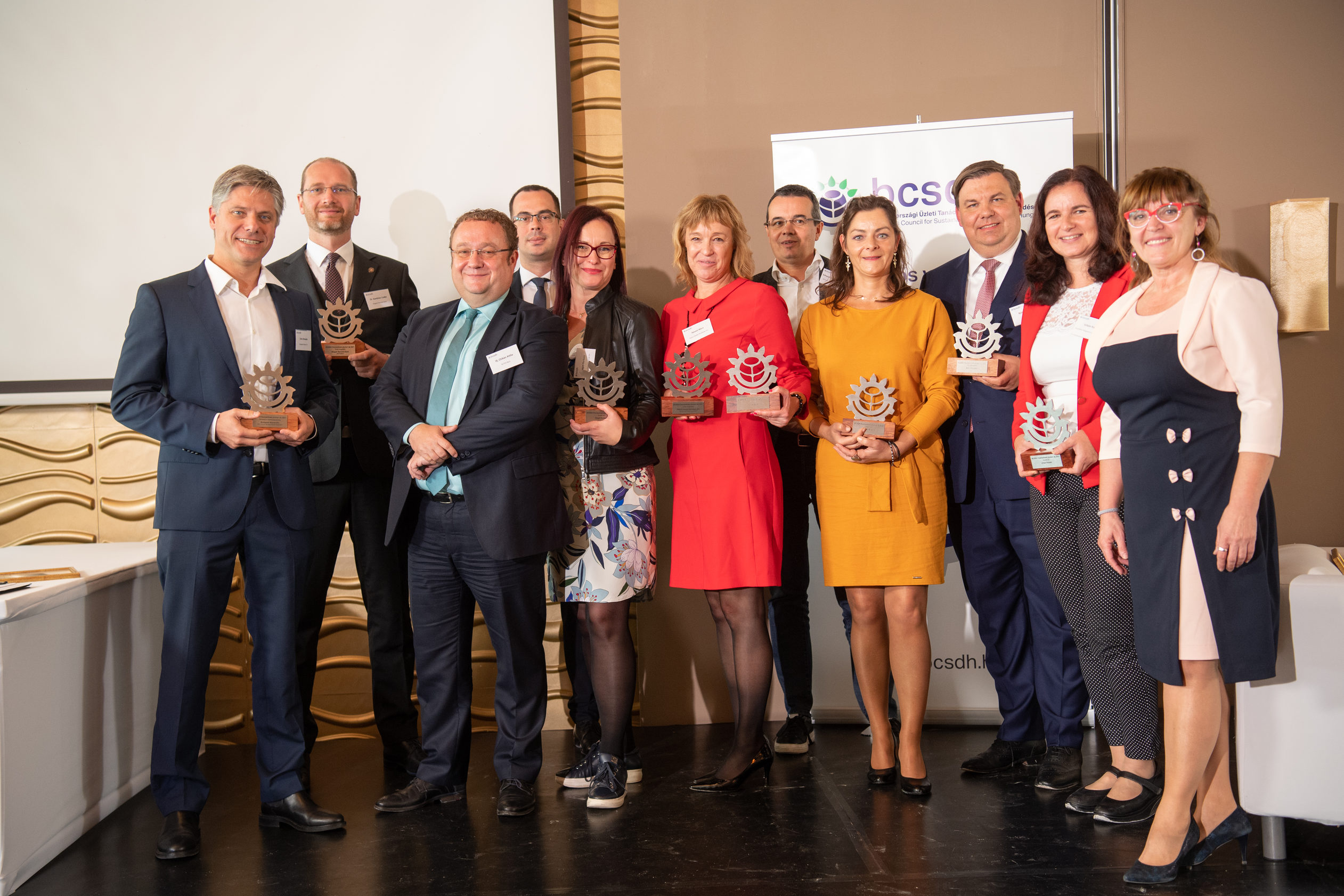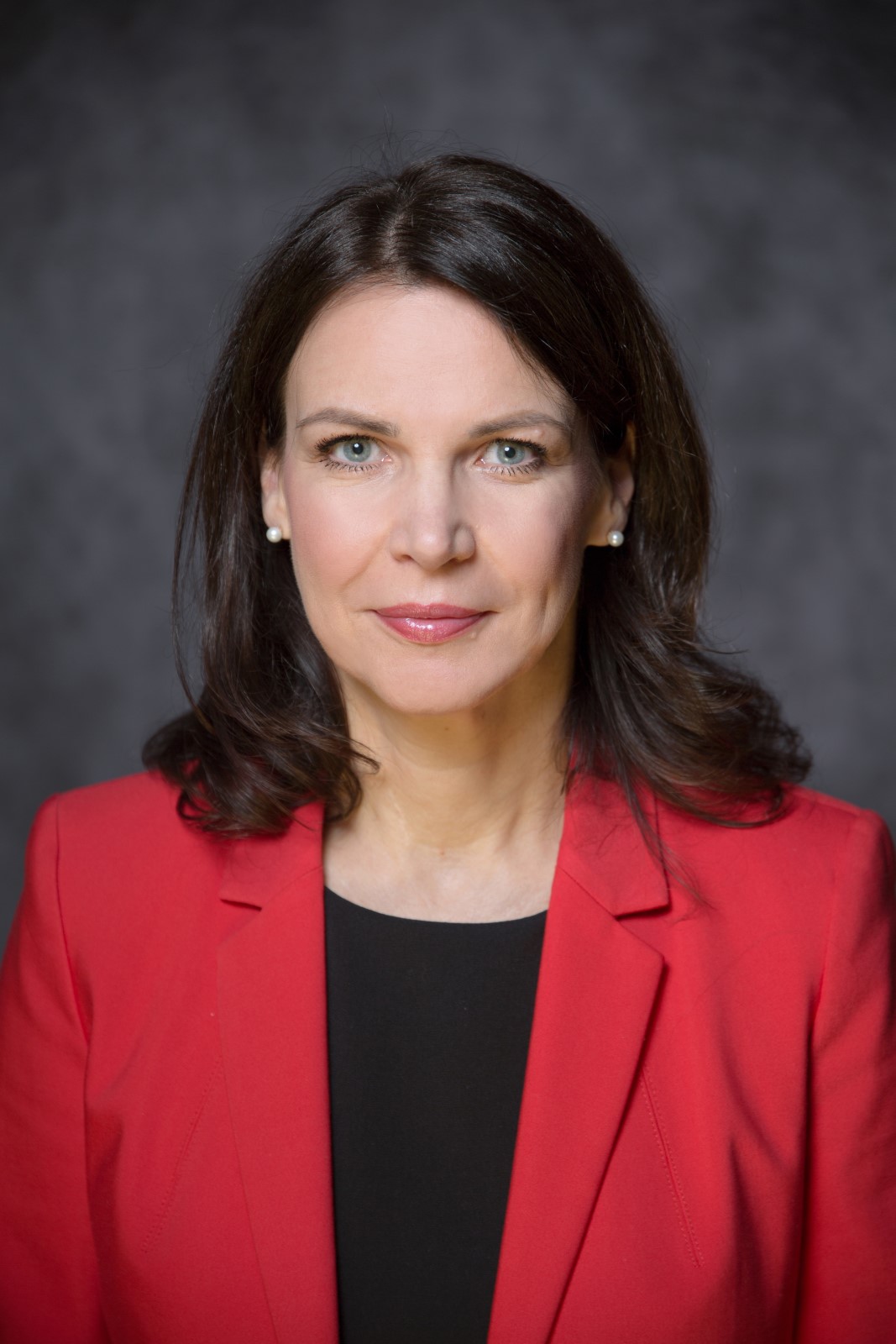The Business Community can Lead the Fight on Climate Change

Jury members and winners of the BCSDH “For a Sustainable Future” awards.
The annual business diner and awards ceremony of the Business Council for Sustainable Development in Hungary highlighted the urgent need for business models for the betterment of society and the climate and rewarded some of those trying to achieve that.
The global average temperature is already 1.2°C higher than pre-industrial levels. A drastic acceleration of ambitions and actions is needed to achieve the climate change goals of the Paris Agreement. What does it take to make the same rate of change seen in other areas, like the rapid digital switchover generated by COVID? What is the business community doing?
At the October 7 business lunch of the Hungarian Business Council for Sustainable Development, its “Vision 2050: Time to Transform” timetable for the business sector was presented.
“The world faces three critical challenges: the climate emergency, the loss of natural diversity, and growing social inequalities. The COVID-19 epidemic has shown that these challenges are closely interlinked and that our systems are not prepared for such shocks, ”said Julian Hill-Landolt, director of the World Business Council for Sustainable Development and the mastermind behind the vision.
“Going beyond normal business is essential to accelerate the transformation. Business leaders need to adopt three mindsets: capitalism that rewards real value creation; a focus on building long-term resilience; and a regenerative approach should be used, in addition to not causing more harm. The business community can play a leading role. Still, it needs to work with academics, policymakers, funders and investors, developers, and consumers to plan systems transformation,” Hill-Landolt told the meeting.
The BCSDH, whose 109 member companies produce about 30% of Hungary’s GDP, aims to generate changes in models and business solutions in Hungary that impact climate change and can promote real responses to domestic challenges due to their take up by other companies.
Year of Action
“This year is a year of action. Countries need to commit to net zero emissions by 2050. They need to submit much more ambitious national climate plans before COP26 in Glasgow. This is what companies must do if they want to protect people, themselves, and the economy from the catastrophic consequences of climate change,” said Attila Chikán Jr., the BCSDH president.
“Low carbon emissions can no longer be the goal. Climate-neutral operations must be achieved as soon as possible. New technological solutions and rapid changes in consumption patterns are needed at all levels,” he said.
Chikán added that “committed leaders and change-makers are vital to making sustainable economic activity more strategic. The mission of BCSDH is to support its member companies to be active agents in shaping the necessary changes”.
With the presentation of the fifth annual Sustainable Future Awards, outstanding leaders and corporate solutions and exceptional social responsibility programs were recognized in four categories this year.
Márta Irén, director of the BCSDH and a member of the professional jury, explained: “Reading the applications, we were pleased to see that although the protracted virus situation has taken significant resources away from companies, significant progress has been made in many areas of sustainability.”
For a Sustainable Future Award Winners 2021
Change Leader
Björn Claussen, BNP Paribas Hungary
Leading Women
Zsuzsa Pálfalvi, Graphisoft Park Services;
Katalin Urbán, Grundfos Manufacturing Hungary;
Nóra Hevesi, Barbara Szigeti, Tesco Hungary
Best Business Solution
The Hungarian National Bank for its “Green Program” that comprehensively represents the sustainability potential of the donor side;
Spar Hungary, for its circular business model selling products from Máltai Manufaktúra;
Tesco, for its food waste reduction program.
Best Social Responsibility Program
Budapest Airport Zrt. for its Employees Foundation, a program for the further employment of employees during the drastic downturn due to the pandemic; and Güntner-Tata, for the “30 Years 30 Good Things for the Community” initiative, a program that exemplifies the responsibility of a local company towards local goals.
This article was first published in the Budapest Business Journal print issue of October 22, 2021.
SUPPORT THE BUDAPEST BUSINESS JOURNAL
Producing journalism that is worthy of the name is a costly business. For 27 years, the publishers, editors and reporters of the Budapest Business Journal have striven to bring you business news that works, information that you can trust, that is factual, accurate and presented without fear or favor.
Newspaper organizations across the globe have struggled to find a business model that allows them to continue to excel, without compromising their ability to perform. Most recently, some have experimented with the idea of involving their most important stakeholders, their readers.
We would like to offer that same opportunity to our readers. We would like to invite you to help us deliver the quality business journalism you require. Hit our Support the BBJ button and you can choose the how much and how often you send us your contributions.









